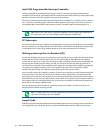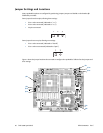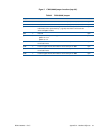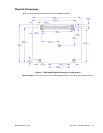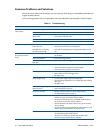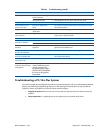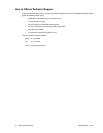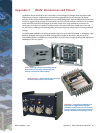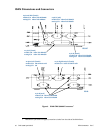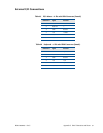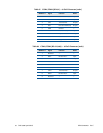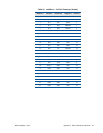
92 CMX158886 cpuModule BDM-610000049 Rev G
Common Problems and Solutions
Table 64 lists some of the common problems you may encounter while using your CMX158886 cpuModule, and
suggests possible solutions.
If you are having problems with your cpuModule, review this table before contacting RTD Technical Support.
Table 64 Troubleshooting
Problem Cause Solution
cpuModule
“will not boot”
no power or wrong polarity
• check for correct power on the PC/104-Plus (PCI) bus connector
incorrect Setup
• reboot and press Delete to run Setup
defective or misconnected
device on bus
• check for misaligned bus connectors
• remove other cards from stack
cable connected backwards
• verify all cables are connected correctly
SSD installed backwards
• check for an SSD memory installed in socket backwards
cpuModule keeps rebooting problem with power supply
• check for correct power on the PC/104-Plus (PCI) bus connector
reset switch is on
• check that the reset button is not pushed in
watchdog timer is not being
serviced quickly enough
• verify that the watchdog timer is being refreshed before it times
out
cpuModule will not boot
from particular drive or
device
device not bootable
• use sys command on drive or reformat the device using
the /s switch
device not formatted
• format drive using /s switch
power not connected to
boot drive
• connect power cable to floppy or hard drive
erratic operation excessive bus loading
• reduce number of modules in stack
• remove termination components from bus signals
• remove any power supply bus terminations
power supply noise
• examine power supply output with oscilloscope
• glitches below 4.75 VDC will trigger a reset
• add bypass caps
power supply limiting
• examine power supply output with oscilloscope
• check for voltage drop below 4.75 VDC when hard drive or floppy
drive starts
• add bypass caps
insufficient cabling through
power connector
• increase wire gauge to connector
• power through bus connectors
temperature too high
• add fan, processor heatsink, or other cooling device(s)
• See Thermal Management on page 72
memory address conflict
• check for two hardware devices (e.g. Ethernet, SSD, Arcnet,
PCMCIA) trying to use the same memory address
• check for two software devices (e.g. EMM386, PCMCIA drivers,
etc.) trying to use the same memory addresses
• check for hardware and software devices trying to use the same
memory address
• check for an address range shadowed (see Advanced Setup screen)
while in use by another hardware or software device
I/O address conflict
• check for another module trying to use I/O addresses reserved for
the cpuModule between 010h and 01Fh
• check for two modules (e.g. dataModules, PCMCIA cards,
Ethernet) trying to use the same I/O addresses



